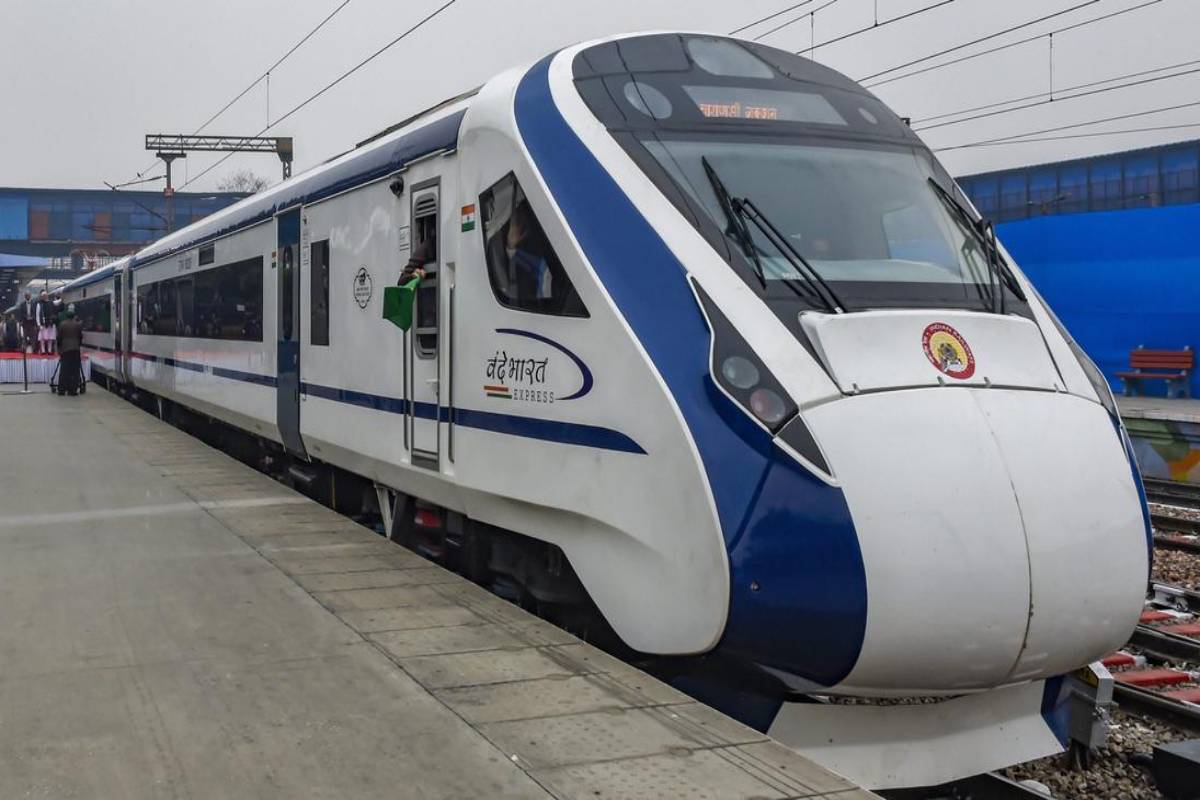Vande Bharat Express depicts new energy of India, says PM Modi, flags off 9 new trains
Prime Minister Narendra Modi on Sunday flagged off nine new Vande Bharat Express trains and said that these trains depicted…
In view of the ongoing war between Ukraine and Russia, the Central government has decided to make forged wheels of international standard in India.

Representational image
The semi-high-speed Vande Bharat trains made with indigenous technology, which are gaining international acclaim, will now run on indigenously manufactured forged wheels.
In view of the ongoing war between Ukraine and Russia, the Central government has decided to make forged wheels of international standard in India. The Railway Board has awarded the contract for making wheels to two indigenous companies under Make in India.
A senior Railway Board official said that the forged wheels are needed to run the goods train and engine at semi-high speed. Only cast wheels are made in India, and they cannot be driven faster than 120 km per hour.
Advertisement
He said 60,000 cast wheels and 7,000 forged wheels are made in Durga Steel Plant, Bhilai Wheel Plant, Yelahanka Wheel and Axle Plant, etc. Railways need two lakh wheels annually, of which 80,000 are forged wheels. These are imported from Ukraine, European countries, Germany, Czechoslovakia, etc.
The import of forged wheels has been affected due to the Russia-Ukraine war, the official said. In view of this, in September 2022, under Make in India, tenders were issued to make forged wheels in India. Last week, two Indian companies were given the contract to make forged wheels. Rs 1,000 crore will be spent on setting up of a new wheel factory. Under the agreement, the companies will produce one lakh forged wheels per year.
Railways will buy wheels worth Rs 6,000 crore from companies every year. Three lakh forged wheels will be required for 478 Vande Bharat trains. In the next few years, the companies will produce a total of more than 1.5 million forged wheels. In this, goods trains will be run on LHB coaches, 9,000 horsepower electric engines, and dedicated freight corridors. Under the agreement, the companies will be able to export forged wheels to Ukraine, and European countries, besides supplying forged wheels to railways.
The method of making a forged wheel is different. After shaping the wheel, it is repeatedly pressed at high pressure. Due to this, the possibility of any kind of vacuum or air in the wheel is completely eliminated. This makes their quality an international standard. And it lasts for a long time. Their re-profiling does not have to be done again and again. They are suitable for running at semi-high speeds (160-200 km).
The method of making cast wheels is traditional. In this, iron is melted and given the shape of a wheel. After this, their surface is made smooth through the machine. These wheels are made to run at a speed of 120-130 kilometers per hour. However, it is necessary to re-profiling the said wheel after a certain time, otherwise, pits are formed in it. Due to this, there is a fear of train accidents.
In technical language, the potholes caused by rail wheels are called re-profiling. After running for several lakh kilometers, small pits are formed in the wheel. Then their re-profiling is required. For example, when car tires are punctured, they are covered with rubber. In re-profiling, the wheels of the rail are reduced by wearing a few millimeters. Due to this, their surface becomes smooth.
Advertisement